Uncensoring Ourselves
A conversation on shame with Jezz Chung and Tiffany Yu
Escrito por Made of Millions Team
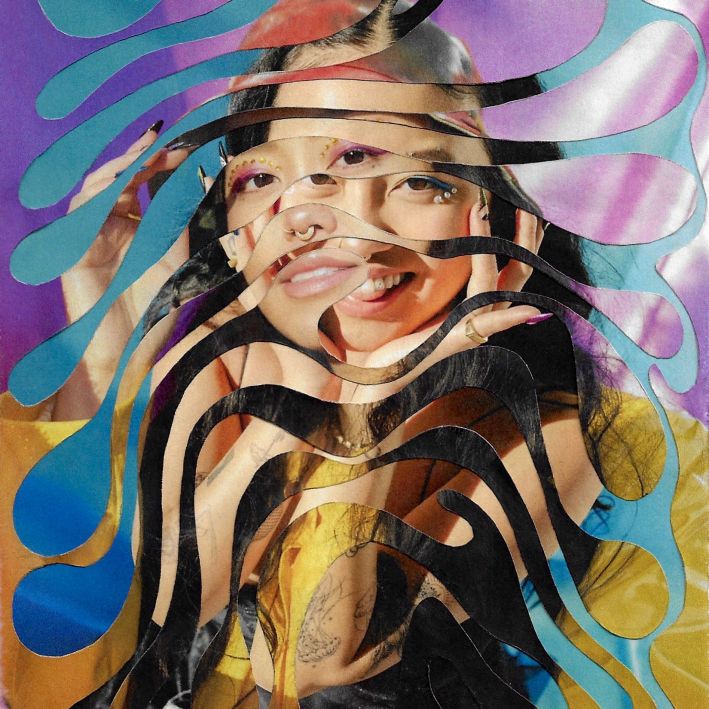
01 Jezz Chung is a queer, neurodivergent, autistic, Korean American with chronic depression and ADHD who works as a writer, performer, and creative equity consultant in Brooklyn, New York.
02 For our Shame Shouldn't Be a Symptom campaign, Jezz spoke with fellow advocate and Diversability founder, Tiffany Yu, about shame, mental health and intersectional identities.
03 All collage artwork from our campaign was created in collaboration with Ian Woods. Find him on Instagram at @ian___woods.
Jezz Chung spends much of their days advocating and empowering others, both online and off.
They are a champion of introspection, rest, and communal care. They believe that our professional and personal spaces can be more understanding and accommodating of those who fall outside of - and seek to challenge - societal norms.
However, their journey to this place hasn’t been easy. As a queer, neurodivergent, autistic, first generation Korean American with chronic depression and ADHD, unlearning harmful norms has been an unfortunate reality. Much of Jezz’s journey has been fraught with internalized shame. Shame around being too much. Shame around not being enough. Shame around being different. Shame around speaking up.
For mental health awareness month, Jezz sat down with fellow advocate and Diversability founder, Tiffany Yu, for a candid conversation about her mental health diagnoses, experiences as an Asian American, and journey towards self-discovery and compassion.
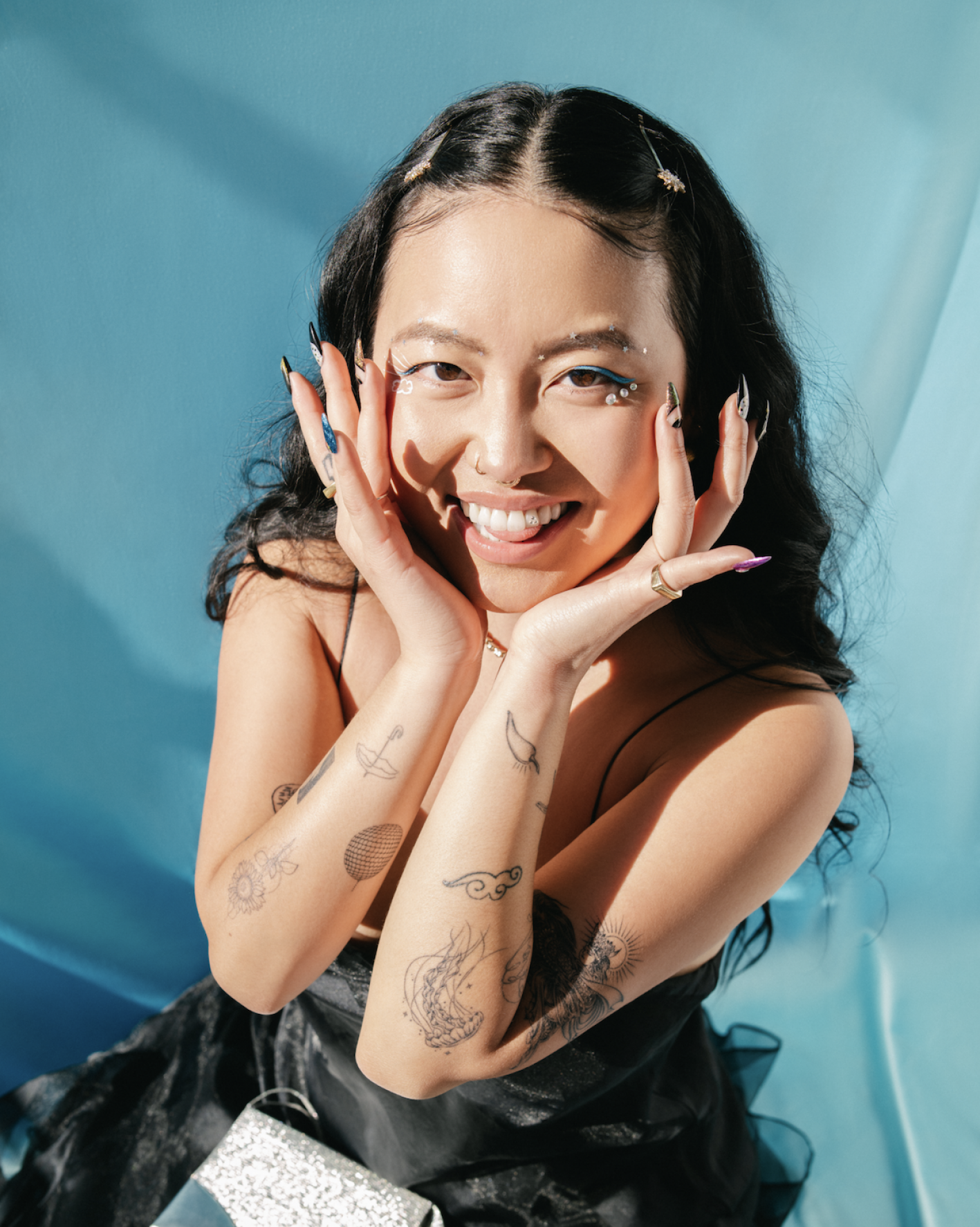
Photography by Jay Blacks (@thejayblacks).
Hey! I’m excited for this chat. Let’s start off by having you share a bit about yourself.
First, I'd like to level-set how I’m arriving to this conversation. Something that weighs heavily on me is when I feel like I have to mask or follow social scripts. I want to let you know I'm coming into this feeling frazzled. This week has been really busy. I've had a lot less room to breathe than I usually like, but I'm really looking forward to talking about mental health with you.
Thank you for bringing that into this space. We can't de-compartmentalize our mental health. Sometimes we're bringing energy from one space into the next, and we try to reset, but we can't. I also love that you talked about masking. I think that's something that's so prevalent within the Asian community and our own connection to mental health. I'd love to learn a little bit more about what mental health conditions you're diagnosed with and where you are in your journey.
My name is Jezz Chung. I use both she/her and they/them pronouns — I really like hearing both. I live in Lenape territory, which is now known as Brooklyn, New York. I’m 30 years old. My conditions are complicated because I've gone through so many different stages with them. Even the language that I use to describe them. I used to say I'm depressed, and now I reject that language for myself. I say I experience depression, but I am not depressed.
From a psychiatric standpoint, I’ve been diagnosed with major depressive disorder, general anxiety disorder and attention deficit hyperactivity disorder. I've been experiencing panic attacks since I was about seven years old, symptoms of depression since I was about 12, and symptoms of ADHD ever since I learned what that was in elementary school.
And very recently, this is something that I’ve been slowly sharing, I realize I'm autistic. That's my self diagnosis after doing a lot of research online. It's really been people who have been sharing their stories and their experiences that have helped me understand the masking, the stimming, the hyper stimulation, the sensory overload. So I now identify as autistic as well.
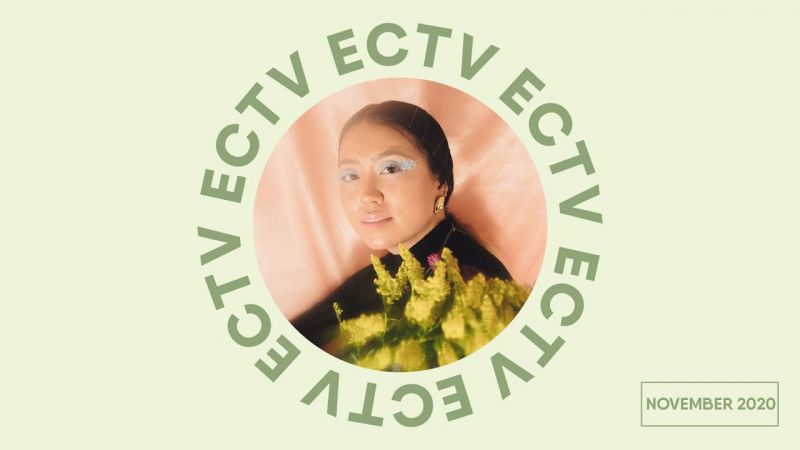
Consciously Crafting a Liberated Lifestyle
A guided workshop facilitated by Jezz Chung for Ethel's Club.
I was diagnosed with post-traumatic stress disorder related to a car accident in 2019, and I think that oftentimes, with our diagnoses, people will say we're “struggling” with them. It sounds like for you, for a long time people were like, “You are this.” So I'm curious, when did you first realize that maybe there was something a little bit different about how you were navigating the world from a mental health perspective?
So speaking of this newfound self diagnosis of autism, I have this big poster board in my closet where I'm writing out autistic memories. They’re moments where I realize: Oh! That was an expression of autism. I’m making sense of my experiences under an autistic framework. I have distinct memories of being really hyper stimulated, going into sensory overload and having my body just shut down.
One time was at my own birthday party when I had my friends over from school. I think it was just too much for me and I went into a closet to hide. I've also always been really sensitive to violence, so I've never been able to watch any type of gore. If I accidentally watch something violent, I'll have nightmares. I've always been sensitive, even to sounds and smells.
My panic attacks started when I was around seven. My mom said I couldn't ride planes for a few years because I went into panic mode when we were in the air. I remember missing my aunt’s wedding because of this. When she would go back to see family in Korea, I couldn't go with her. There's been a lot of memories like that where my mental health has affected the way that I relate and communicate with other people, and the ways that I show up in my environment.
After having known that you were experiencing all of this as a child, was there a turning point, in what sounds like your mid to late twenties, when you realized you should probably get an official diagnosis?
The turning point definitely came when I moved to New York in 2018. I moved here when I got a job as a copywriter at another advertising agency. I was working really long hours and my ADHD really showed up in that environment. I couldn't focus until everyone left the office and I was overworking myself trying to keep up.
New York is a tough city to find roots in, so I was feeling really lonely. The isolation was affecting me and to be honest, I started having life-ending thoughts, going into suicide ideation. I would look at the train tracks sometimes and ask myself, what would it be like...? I call it ideation because I never made a plan, but I remember I didn't have a taste for life anymore. It felt like all the life was vacuumed out of my soul and I was this empty vessel walking around. Whenever I’d stare at the train tracks and have those thoughts, I thought, whoa, this isn't a healthy thought to have. I'm really scared about the direction I'm going in and if I don't save myself, then something terrible could happen.
That's when I realized I had to get help. It took me reaching that level of desperation to seek help. Before, I thought I didn't need a therapist. All those stigmas of therapy where people think, oh, you go to therapy because there's something gravely wrong with you. I thought that therapy wasn't for someone like me who was, quote, “high functioning.” That’s a term that I don't like to use because yes, I was doing my best and I pushed through, but that doesn't mean I was okay or could handle it.
I went to go see a psychiatrist for the first time and took a bunch of tests. I remember when I was taking the questionnaire for ADHD, I fell asleep and I was like, oh I definitely have this cause I can’t even get through this. Then I started therapy.
One of the first questions my therapist asked me was, what does your support system look like? And I was like, what do you mean? She told me that I should have people I can count on, but I always thought I was supposed to carry this burden on my own. I'm having these really dark, scary thoughts and I don't want to put that on anyone. So she taught me how to build that support system in a healthy way where I wasn't emotionally dumping on someone, but sharing responsibly. And actually believing I deserve to be supported.
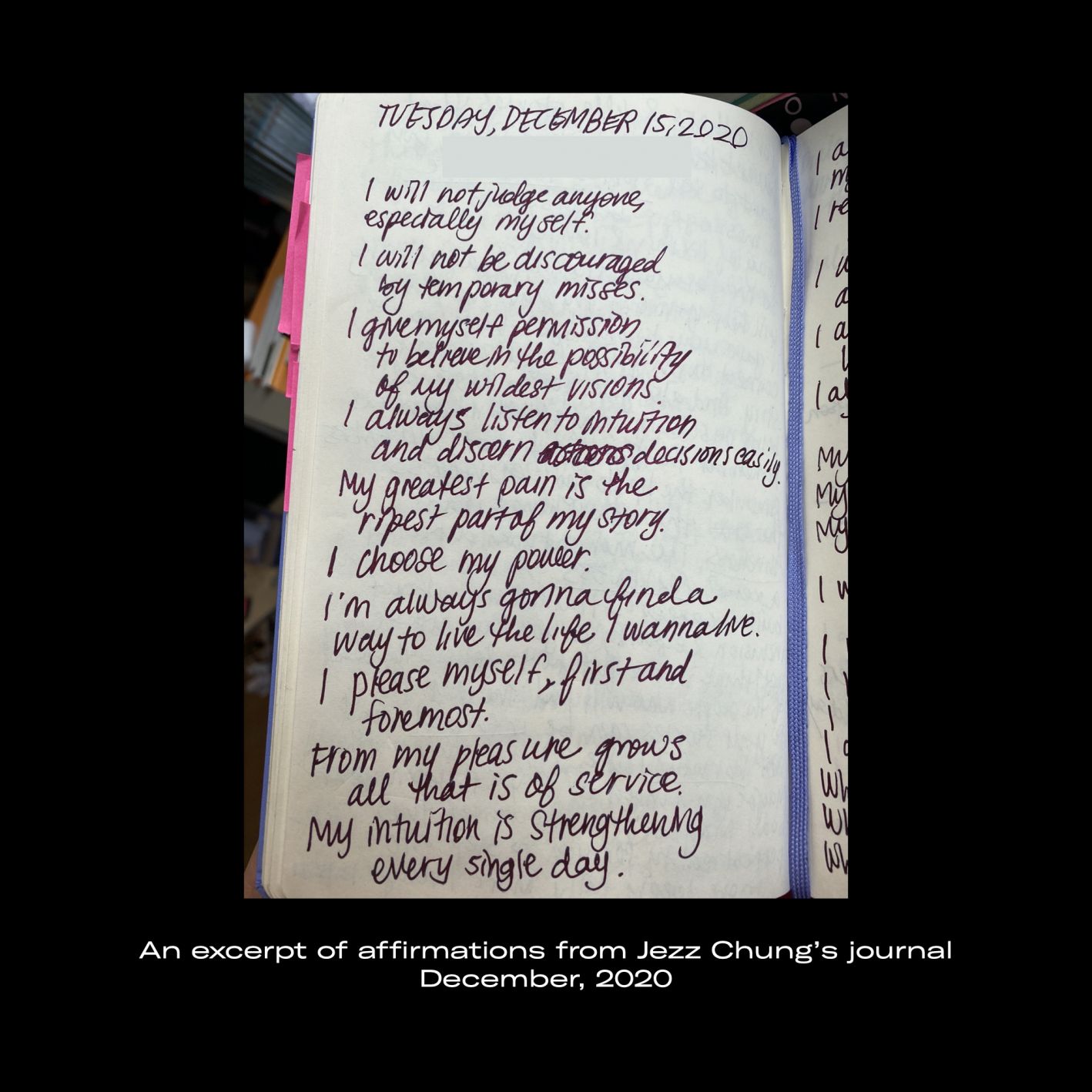
Wow, that's so powerful. I think what's so interesting about your story, and many of ours, is we reach a breaking point. If this pattern continues, this is not a path I want to go down. It forces us to finally say, I need to find support. I'm curious if you had any limiting beliefs that were culturally driven. Did your parents say things to you about what mental health help does or doesn’t look like?
Absolutely. It's culture, class, gender, everything. I was raised by a Korean migrant mother who was single for a long time and struggling to support us. Looking back, I didn't know this at the time, but she didn't have insurance that could support me getting a therapist at that age. She didn’t have access to mental health resources, she was just trying to survive, barebones.
Another context is that I come from a history of mental health conditions on both sides of my family, everything from addiction to bipolar disorder to PTSD. It's intergenerational. My mom is a very devout Christian and her father was a pastor, so the answer to everything was religion and prayer. Whenever I first learned about ADHD, I told my mom, “I think I have this. I learned about it from someone else who has it in school.” I asked her to take me to a counselor, but she told me, you get straight A's. You're fine. Just pray about it. And I thought, yeah mom, I get straight A's because I'm staying up so late studying. Even in elementary school it was really hard for me to keep up. I tested into the gifted and talented program, so my mom thought, well they’re labeling you as smart so you can't possibly have any neurodivergent conditions.
She grew up in a dirt village in South Korea. She didn't have access to any kind of support and she didn't have the vocabulary. So because she didn't have that support, she didn't pass that support onto me. And while I was resentful for a while, now that I'm in a different stage of my mental health and personal development journey, I realized she was doing the absolute best she could.
Moms are heroes. I'm the youngest of four, and also had a single parent. My dad passed away when I was young and my mom grew up during the Vietnam War. In reflecting on what you said, I think about how so much of what we thought were acceptable behaviors we learned from our parents.
My mom is the strongest person I know, and I love that you mentioned this journey of moving from resentment to forgiveness. I think Oprah has a quote where she says, Forgiveness is letting go of the dream that the past could have been any different. And in a way, we're kind of picking up the pieces from what our moms left us and figuring out what our own journeys look like for us.
I love that because it also makes me think about acceptance, which is such an important part of any kind of mental health journey: accepting and acknowledging, and then allowing that to create new choices for us. And then I also think of that one quote: Resentment is like drinking poison and expecting the other person to die.
That's a good one. I want to transition our conversation over to talk about shame. We want to focus the series on how shame plays a role in the treatment gap, which I believe the average is about fourteen years. For me, it was twenty. For you, it sounds like it was about twenty as well. Looking back on your journey, what role did shame play that kept you from getting the support you needed?
Shame has played a part in all the intersections of my identities. As a queer person, a bisexual person, a neurodivergent person, a woman and non binary person, a Korean American, first generation — all of these experiences.
I think shame, above all, has kept me from getting to know myself. I'm so sad for the younger version of me who didn't have access to get to know herself because she thought, oh, I can't even think these thoughts. I'm not allowed to. What a sad thing that is for us to even censor what we think and feel about ourselves.
Condiciones relacionadas
People have told me being bisexual isn't a real thing, so I thought, okay, I can't be bisexual. Or people told me all the things we've heard about being Asian American, from getting made fun of for my eyes or my face, to the way that my mom spoke when she picked me up from school, to the way that my life seemed to be so different than the other people I grew up around in Georgia.
In terms of shame around my mental health and neurodivergence, I'm realizing all of the masking I do because of my relationship with sensory information. I need to move around a lot and drink water often. Sometimes I need to literally reset my face because I carry so much tension in my jaw. Even though these things make me feel more comfortable, they’re not necessarily acceptable to do in front of people. I feel comfortable now because we're talking about mental health, but that's not always the case. So I think that shame keeps me from expressing myself in the ways that I want to.
A big thing you talked about is when we have what are called “secondary emotions”, or emotions about emotions. We feel something then say, oh I shouldn't feel that way. Brené Brown has this quote that says, shame festers when it's in secrecy, silence and judgment. It sounded like you had a lot of judgment coming your way, which then turned into self judgment, which then turned into masking. Have you noticed any strategies that work for you in terms of building what we call “shame resilience”? And if you still feel like you are harboring some shame, where do you think that's coming from?
Mmmhmm. Secrecy, silence, and judgment is a cycle, right? The way that I show up affects the way that people perceive me, and then the way people perceive me impacts the way that I show up. I've heard throughout my life, “Jezz, you are really vulnerable. I really admire how open you are.” But, this is survival for me. I have to let it out. It's really hard for me to keep things inside.
I listen to my body and try to give it what it needs. If my body says take a break, close your eyes, reduce that stimuli, get up and move, I think it helps a lot to listen to that. I'm a really big believer of affirmations, speaking words out loud. I will look at myself in the mirror in the mornings and put a makeup look together and that's my meditation time. I’ll say something like, “Jezz. I see you. I love you. You're doing amazing. I know that thing you just did, it wasn't perfect, but you did your best. You know that there's no such thing as perfection. You have truly come such a long way.” I'll speak life into myself. And then if I feel panic coming on, I say affirmations like, “I am safe. I am protected. I am loved and I am lovable. I am comfortable in my body. I am in control of my breath. I inhale easily. I exhale easily.” I will speak those words over and over again until I believe them.
You're making me think a lot about affirmations because I've honestly felt a little disconnected from them. I feel like part of it comes from needing to have a certain level of self trust or intuition. It seems like you have come into this strong sense of self. Do you have advice for people who might not resonate with an affirmation?
It took me a long time to claim my identity. To this day, I have thoughts like, am I Korean enough? Queer enough? Disabled enough? When I think about my relationship to intuition and self trust, I think about the internalized oppression that I’ve been conditioned to believe, and how much racial trauma and systemic racism have played a part in my relationship to shame.
The way that shame shows up for me, the way that I sometimes don't trust my own voice, the way that I silence myself before I can even speak things out loud. Again, that's where all those systemic inequities — ableism, sexism, racism, queerphobia, — have played such a huge part in the ways that I talk to myself, and in the ways that I love myself.
And to go back to your second question, when I'm sharing things with people, there’s this quote I think about a lot that says, “We can only meet people as far as we've met ourselves.” For someone like you or me or people that we know, we've kind of been forced into explaining our existence, to get to know ourselves and take care of ourselves. I find a lot of comfort in queer spaces because there's a lot of listening. Also Asian American and women of color spaces. Women and femmes of color have kind of been my lifeline throughout the past few years. That sisterhood and siblinghood has really been critical because I respond to other people's energy. If someone is arriving openly, then I'm way more comfortable arriving openly too.
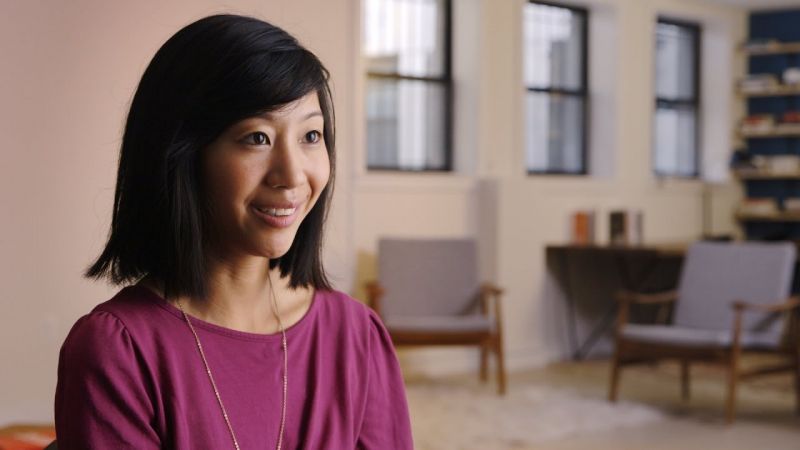
Tiffany Yu on Inequality and Disability
Tiffany talks about exclusion and workplace disability reform.
There are so many things to unpack around systemic oppression. I love that you brought that into this conversation, the fact that we have been conditioned to erase ourselves from ourselves.
The other thing you touched on was needing this level of psychological safety. This person I had on my podcast once was talking about how their vision of the world is to create more unity. That we needed to unify on our definition of unity. And I was like, my vision of the world is that I can go outside as an Asian woman and feel safe. If you feel like you're still holding internalized shame, what do you do to remind yourself that feelings of low self-worth, imposter syndrome or inadequacy aren't real?
An Audre Lorde quote that guides me is, “It is not our differences that divide us. It is our inability to recognize, accept, and celebrate those differences.” When I hear these calls that we need humanity and unity, it’s like yes, we need that, but we also need to take so many steps before we get there. We need to name racism, sexism, queerphobia, classism, and ableism. We need to name these things so that we know how to identify them within ourselves and everything around us.
Especially when I enter spaces of spiritual practice, I see that while trauma affects us all, we're not all talking about the same traumas. When we're talking about identifying and removing the ego, I wonder how many people are actually doing that work within themselves. Because the -isms don't just live out there, they live within us. That's why they exist in the culture and in social structures, because we are part of those structures and we create those cycles.
When that internalized oppression comes up and I feel like I'm not good enough, I constantly have to remind myself, your expertise is in your lived experiences and intersections. I have to constantly remind myself that I am queer enough as a bisexual woman and newly identifying non-binary person. I can be both a woman and non binary. I can use multiple pronouns. I am allowed to feel the multitudes of what I’m feeling.
Sometimes I look at other writers and think, oh my gosh, they have multiple books already, or they have such a great platform, or they seem so sure of themselves. I tend to put them on a pedestal and create separation. That's when I identify ego is talking and when those affirmations come into play. I lean on those words to say, I am beautiful. I am smart. I deserve to step into my bigness.
When I identify any type of superiority or separation, I kind of bring it back to myself and see how I can give myself more love. Especially lately as an Asian American woman, we experience so much harm and violence in the news and around us. Transformative justice practitioners say that the antidote to harm and violence is care. So I like to ask myself, what do you need at this moment? Do you need a breath? A sip of water? To call a friend? Then I allow myself to follow through on that and put care into action every single day.
One of the things you made me think about was a quote, well, my paraphrased version of it: How radical of an act is it to like yourself when so many of the identities that you hold are being reinforced by systemic shame? I just made that up, systemic shame. But that's what we're battling against, right? We have all of this messaging and comparison. You mentioned a little bit of people who are in their Chapter Nine when you're in your Chapter Five and this highlight reel with social media.
That makes me think of something else Audre Lorde said: If we don't define ourselves for ourselves, we'll be crunched up into other people's definitions. So that's what comes up for me when I hear you say that we should define ourselves outside of the systems of shame and making sure that we continue to enforce those definitions, even if the people around us may not believe it.
Another big part of that is what's called a “care mindset”. Advocacy and activism burnout are real things. When you and I are doing a lot of work that serves our community, asking this question, “What do I need right now?” or “What's coming up for me right now?” can be hard. It's almost like relearning some of those habits. As we close our conversation now, what advice might you give to others who are working to combat their own internalized shame?
For me, I come back to: shame festers in secrecy, silence and judgment. One of the things that I do is ask myself, what areas of my life do I have shame around and how can I put a spotlight on them? How can I write an Instagram post about something I don't feel super comfortable about?
I got into this car accident as a kid and I have a physical manifestation of my disability in my hand. For a long time, I felt a lot of shame around how my hand looked, so I actually created an entire social media series that was like, hey, here's my hand. For me, that was how I did something before I was ready. Some area of me that I had a lot of shame, I just said, here's the spotlight on it. I don't want shame to have this power over me, so the way I combat it is by giving a voice to the things I have shame about so that it can't be a secret anymore.
I really like removing the secrecy around it, because then it’s like reclaiming that power and saying, who's to say this isn't normal? Especially if it's our body, our mind, our way of being and thinking.
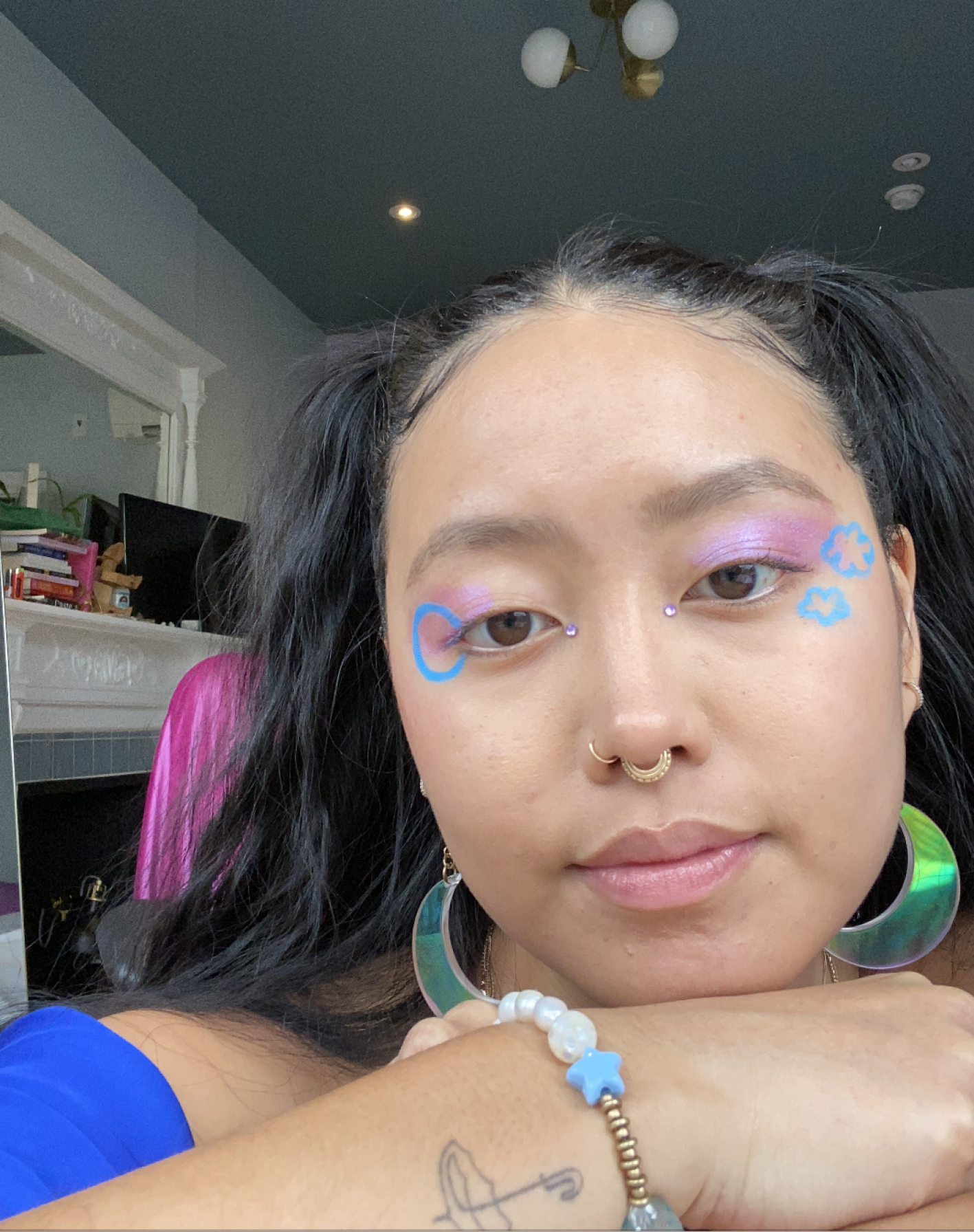
What I'd say to people is: reconnect with your body and listen to what the body is saying. The body has so much wisdom and the body keeps the score [referencing Bessel van der Kolk’s book], but also our body carries so much joy and so much aliveness. Listen for when your body says this is aligned and this is not aligned. Listen for when your body says get up and move, dance, do something silly, pull back. I feel like if we practice listening, we become more connected. So much of what I do is to help people feel less alone and more alive. When we listen to our body, we realize there's a whole ecosystem going on inside of us. Even when we feel empty or completely alone or like there's no hope, there's always something inside us that can help us keep going, even just for a little bit.
So I would say listen to the body and connect with it. Really get to know it and build a relationship that is built on trust and safety and love and compassion for yourself.
Self compassion is huge and I totally agree it’s culturally driven. I think we can be so hard on ourselves. Anything else you'd like to tell others who are fighting similar challenges?
There are so many resources out there. I know that when you're in the throes of a depressive episode or having a panic attack or just feeling really isolated, it can feel like you don't even have the capacity to look for those resources, but they’re available to us.
I've been turning to a lot of Eastern practices lately like qigong. I go on Youtube and do 15 minutes of breathing with the body, slow movements, tapping energetic meridians. There's breathwork for when we need something to ground us. Even the four, five, six method: breathing in for four, holding five, exhaling for six.
So I would say build your toolkit. The more that you practice, the more you'll find what works for you. You deserve all the love and care and support that you desire and seek.
I want to echo that even if you might feel alone, you're not. So with that, it was wonderful to chat with you, Jezz. Great to learn more about you and your work and to know I've got an Asian sister on the other coast out there.
Thank you so much, Tiffany.
Keep up with Jezz on Instagram at @jezzchung and with Tiffany at @imtiffanyyu and @diversability. All collage artwork from our Shame Shouldn't Be a Symptom campaign was created by Ian Woods.
Apoya nuestro trabajo
Nuestra misión es cambiar la manera en que el mundo percibe la salud mental.



















